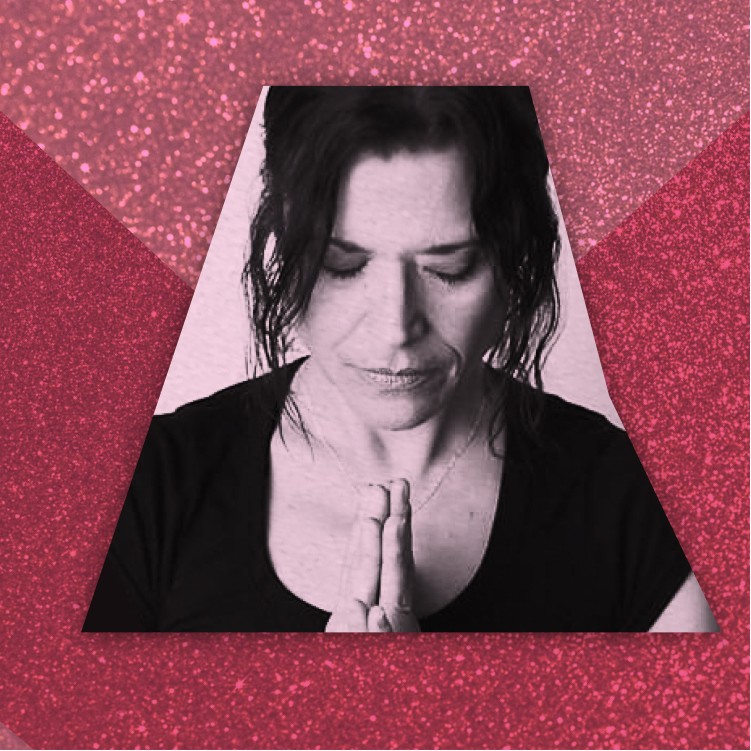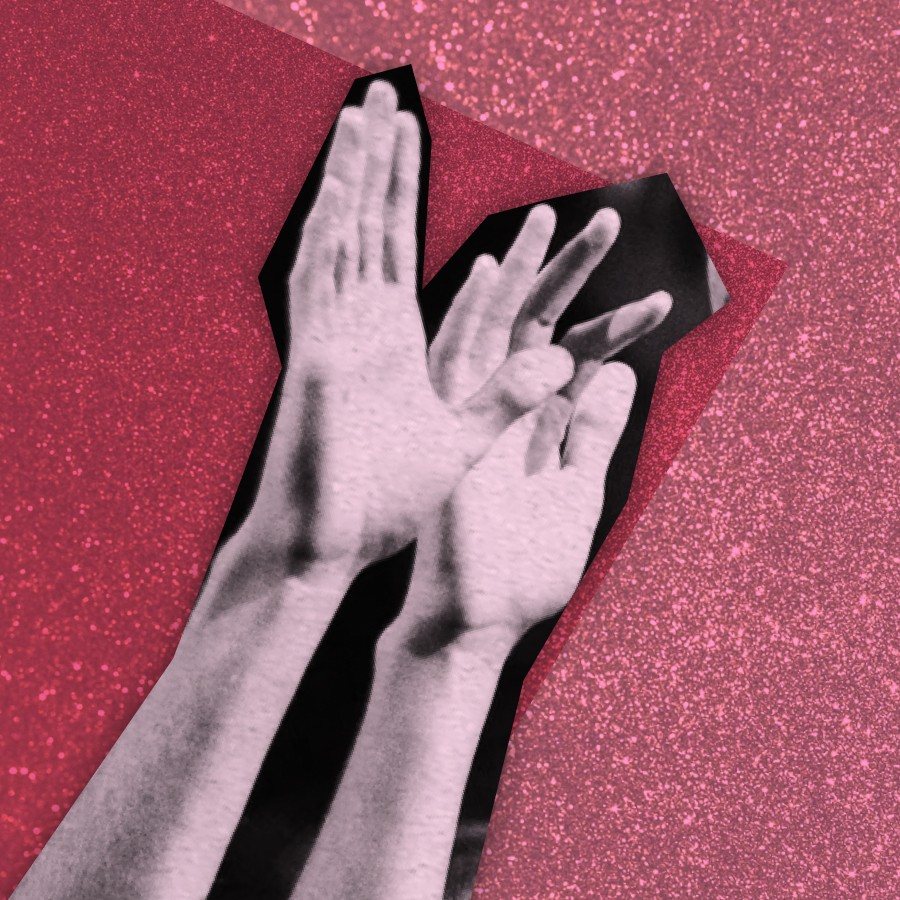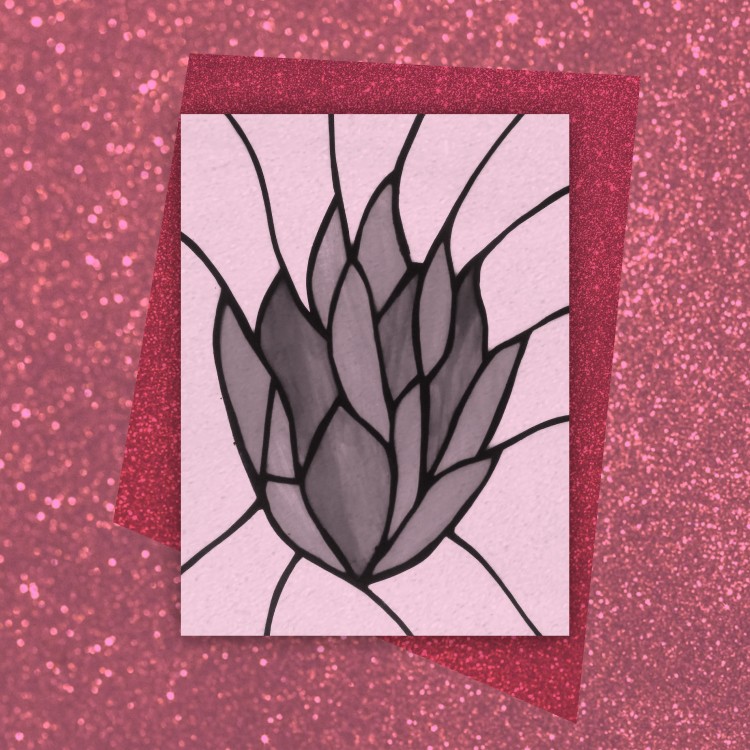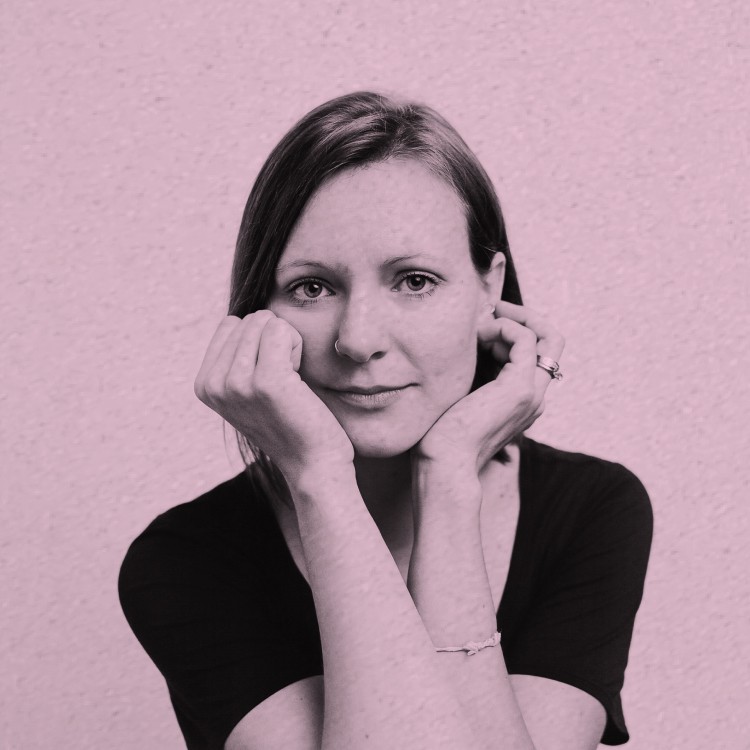DEFILED
Alana enters treatment and comes clean to her family. While still actively seeking Conversion Therapy behind their back, she falls in love.
Part 6 • 39:36
Dear Alana, is available free on all platforms and as an exclusive ad-free binge for Tenderfoot+ subscribers. To sign up or learn more, visit Tenderfootplus.com.
Transcript
The following episode contains references to suicide. If you or someone you know is in need of help, please contact the Suicide and Crisis Lifeline by dialing 988. Listener discretion is advised.
[Music: “Agua,” by La Chica]
JOYCE: I get there to the emergency room. There’s a couple of nuns. And then there’s Fr. Peter on his knees praying over Alana. She’s crying, and I’m just stunned. I’m like, what the hell is going on here? And I said, “I need to be alone with my daughter.” And someone asked her, “Is that okay, Alana?” And I’m like, “What?” And then she said, “Yes.” And they left. And was like, “Alana, what is going on? Is this true, they’re saying you’re suicidal?” I was in shock. And she just said, “Yes, mom, it’s true.” And I just, I lost it, I was so shocked.
SIMON KENT FUNG: From Tenderfoot TV, I’m Simon Kent Fung. And this is Dear Alana.
Part six. DEFILED.
JOYCE: They were there every day, the nuns. All day, pretty much. And we couldn’t, we only had an hour to visit. You know, five of us. I asked the hospital and they said, “They're clergy. They can do that.” I just remember the first day she had visiting hours, I went there and she was crying so much.
SIMON KENT FUNG: Alana wasn’t talking. And Joyce does not know what to do. Her daughter was suicidal, the daughter that she thought was, out of all her kids, doing the best. Sure, Alana had some teenage growing pains, the sexuality question. But she had so many good friends from Frisbee, and a supportive family. Dazed, Joyce rushes home and goes through Alana’s bedroom.
JOYCE: I got anything out of her room that was sharp. And she had all these tools from architecture.
SIMON KENT FUNG: As she’s safety-proofing the room, Joyce stumbles across a stack of notebooks, Alana’s journals. Not one to snoop normally, Joyce feels she has to make an exception, to begin to find answers.
JOYCE: I read all the journals that I found. And like Sophia would come home every day and I’d be hysterically crying. And she’d say, “Mom, this isn’t helping.” ‘Cause I just was in shock too. I didn’t know any of this.
SIMON KENT FUNG: It was surprise after surprise. She reads about Fr. Dave and Fr. Peter. Their ongoing spiritual advice. About Alana’s intense love for God. And for the first time, she comes across entries like this one, which Joyce has bookmarked. She shows it to me as I sit in her kitchen.
JOYCE: “December 8. Thursday. How I feel, what I hear, how I see. I am a failure—moral failure. Obsessed, addicted, selfish, starving, impure, disordered, messed up, repeating lustful thoughts, lonely, incomplete, empty, wasteful, useless, sensitive, prideful, self-seeking, praise-seeking, desperate for love and affection, unable to receive true love, closed off to truth…no one to talk to, no one to understand, can't make eye contact with mom or anyone. Just want it to end, to be fixed…I don't know the way out, it is too much to bear. Can't stay pure for one hour, too much shame, just watch TV or music, drown out…Feel too much, don't know how I feel! Think too much, don't know what I'm thinking! Time to reach out, where do I reach?”
SIMON KENT FUNG: A picture of deep shame was emerging from Alana’s journals. But there were earlier clues that had escaped anyone’s radar, including an incident almost a year earlier.
SOPHIA: I remember a year prior, at the dinner table at Christmas.
SIMON KENT FUNG: This is her younger sister, Sophia, again.
SOPHIA: I had noticed these markings on her arm. And I was like, “Alana, what's that?” At the whole dinner table. And she was like, “Sophia stop!”
SIMON KENT FUNG: Alana tries to hide the cuts below her left shoulder from her sister.
SOPHIA: I thought she had branded herself, like something stupid she had done with her friends or something. But it wasn't that at all.
SIMON KENT FUNG: They quickly excuse themselves from the table.
SOPHIA: And she brought me upstairs. And I said, “Alana, what is that?” And I was like, “Did you brand yourself? Did you do this to yourself? What did you do?” She was like, “You can't tell anyone.” But it still wasn't something we ever talked about.
[Page turns]
JOYCE: I wanted you to see that.
SIMON KENT FUNG: Joyce is showing me a page in one of Alana’s journals. It’s unlike any of the others. It’s an ink drawing with sharp barbs and wild scribbles surrounding 7 giant letters: D-E-F-I-L-E-D. Defiled. This is what Alana had cut into her arm.
ALANA: “There’s a lot to say Jesus, I don't know where to begin. I'm hurting so much. I’m stressed because of school and I don't know who I can trust and who I can be vulnerable with. I just drank poison…looking up how to have sex with women. Jesus…Jesus. I took a blade and carved the word “Defiled” into my arm.”
SIMON KENT FUNG: Alana was tormented by where her same-sex attractions were leading her.
ALANA: “I don't remember everything that happened when I cut myself. I know it was late at night. I was in my…room. The light lamp was on. I felt hopeless. Every exhale dragging me down. I needed a release, something to take this draining feeling away. I don't know how I thought of that word. Defiled. I felt like my body was stained. Covered in filth. That's what the voices told me. That I had sinned. That I was irreparable. I had profaned the temple. I had taken God's gift and squandered it. I wanted to punish myself. I wanted to make it real.”
JOYCE: It’s so wrong, it’s so insane, and unfair. Like she was so good. And then you get this from what, like…It’s like what kind of God do they teach about? I don’t know, Simon. I really want to go there and confront them. ‘Cause I feel like I didn’t know all this time this was going on. This young life? This is what half of it was? It kills me. This is where I go I have to do something and...
SIMON: You will.
SIMON KENT FUNG: I can hear Joyce’s agitation. She wants to do something, confront the people who planted these seeds of shame in her daughter. But religion is complicated. We often find both shame and comfort from the same ancient faith, as Alana clearly did.
After a week in the hospital, Alana returns home. She withdraws from the fall semester at CU. And her mother seeks out additional help.
SOPHIA: My mom went full mamma bear mode, and was taking care of the situation.
SIMON KENT FUNG: After many nights researching online, Joyce discovers an inpatient treatment facility specializing in depression and anxiety recovery. It’s in Tennessee, and Alana agrees to go. The admission notes (which we were only able to obtain after her death) are telling. I begin to read through the report.
SIMON/ADMIN: Name client prefers to be called.
ALANA: “Alana Chen.”
SIMON/ADMIN: Chief complaint.
ALANA: “Sexual addiction, depression, suicidal thoughts.”
SIMON/ADMIN: Spiritual and Religious Background. Please describe.
ALANA: “At 13 I experienced a mystical thing. I was in confession about the sexual addiction and it was taken away from me for like…years.”
SIMON/ADMIN: What is the client’s sexual orientation?
ALANA: “Homosexual.”
SIMON/ADMIN: Does the client have any concerns about her sexuality?
ALANA: “I am really Catholic. My beliefs, I’m always in conflict.”
SIMON/ADMIN: Has the client experienced other events that were abusive or traumatic?
ALANA: “I think my parents fighting all the time was pretty traumatic. We lived in constant fear they were going to get a divorce.”
SIMON/ADMIN: How does the client perceive these experiences have affected her?
ALANA: “I always wanted to be the peacemaker because I didn’t want them to get divorced. I felt it was my responsibility for everything to be OK. Like, if I was there I felt like the fighting would stop.”
SIMON/ADMIN: What is the client’s motivation level for recovery?
ALANA: “3/10”
SIMON/ADMIN: What is motivating the client for treatment?
ALANA: “If I don’t get better I will kill myself.”
SIMON KENT FUNG: Alana is admitted for recurrent and severe depression and self-harm. She spends the next three months at the treatment facility, where she gets a range of targeted, evidence-based therapies including Dialectical Behavioral Therapy to reduce her suicidality, group therapy, and Adventure Therapy at the nearby state park. She goes to classes on nutrition and mindfulness, and even spends time with horses.
One weekend, the treatment facility invites Alana’s family to come in for a visit. Alana seems to be making progress, and her family is excited to see her. Carissa, her older sister, remembers the significance of this time, because that’s when Alana…came out to her.
CARISSA: I guess I was hopeful that like as she was telling me and her family that she was feeling open and starting that she could start to live into who she really was. To me, it's like, okay, you're gay. Be gay, drop all the Church stuff. Forget about it, leave that world. Like they don't love you or see you for who you are then who cares?
SIMON KENT FUNG: Meanwhile, Joyce still feels in the dark. Alana’s mainly confiding in her friends back home—particularly her church community. And Joyce reaches out to the St. Tom’s crowd to ask them to give Alana some space.
But from Alana’s treatment notes, this actually has the opposite effect.
ALANA: “I am considering placing some serious limitations on my mother…Every time I tell her anything, she blames and tries to change my belief system. Every suggestion she makes to me, she is trying to change my belief system. My belief system is one of the most core parts of my identity, and I can't surround myself with…people that don't accept me without trying to change me.”
SIMON KENT FUNG: As I read her journal entries from this time in treatment, I’m struck by the irony of the situation. Alana’s frustrated with her mother. She feels like she’s the one who doesn’t understand or accept her—not the Church community that she’s gone to such great lengths to try to change herself for.
From Joyce’s perspective, the contact with Fr. Dave and the sisters needs to stop. Something’s not right about the level of influence they’re having over her. But for Alana, it’s her church that seems to provide a locus of stability for her while she’s in treatment.
ALANA: “I think the Prozac is keeping me alive. The only thing I care about right now are these nuns I’m friends with. They love me…They don’t get scared of my emotions and problems. They make me laugh. They don’t judge me.”
SIMON KENT FUNG: It’s 1AM and just as I’m about to fall asleep, my heart starts racing, and I’m jolted up. This has never happened to me. I feel oddly afraid. But of what? I’m safe in my bed, my dog is lying next to me. And there’s no noise that startled me. It happens like this for the next few hours, until I manage to doze off. Exhausted. I’ve never had a panic attack before in my life.
After months spent researching conversion therapy, re-listening to talks, reading Alana’s journals, I’ve been feeling a lot of emotions coming back. I thought I’d moved on from this time in my life, like I’m reading a story about my past. But a part of me still feels attached to these ideas. And I feel jumpy and anxious all the time. Like there’s still something unresolved.
As difficult as this is for me, I know it’s just a small dose of what Alana must have been going through. Her hospital records, texts, and emails give us insight into how she felt during this time in treatment.
Joyce remembers how Alana kept a tight lid on what she was telling her family. From her texts, I can see that Alana gives Fr. Dave the play by play of her hospital admissions. He checks in with her frequently, calling the treatment center to figure out how he can visit her. From her emails, it looks like after Alana was hospitalized, her spiritual mentors were sending her resources: there’s a barrage of blog emails from Fr. Dave, like one he sends her just two weeks after her suicide scare, about embracing the cross and choosing Christ over the gay lifestyle. There’s a note from a nun the week before encouraging Alana to attend a women’s retreat run by Courage, the Catholic support group for those struggling with SSA. As I scroll back chronologically, I come across an email written by Alana herself, dated just a few months before her hospitalization.
ALANA: “Hi there, my pastor, Fr. Peter Mussett, has continued to recommend that I attend the Living Waters Leadership Training week this summer. I am a college student at the University of Colorado, I am a Catholic, and I struggle with SSA.”
SIMON KENT FUNG: I recognize the group Living Waters immediately. This is bringing back so many memories.
ANDY COMISKEY: We have people in our churches who look in the mirror and don't know their own gender, who seriously believe that their best friends are their sexual completion…
SIMON KENT FUNG: Living Waters was founded in the 80s by a man who struggled with SSA and later married a woman and had children. I remember his success story being such a source of hope for me when I was a teenager, secretly researching conversion therapies online. I can’t believe Alana’s being steered here, over a decade later. This is their promotional video from 2016.
ANDY COMISKEY: We provide a one week training where your wounded healers come to provide these kinds of in-depth healing opportunities. Come and substantiate the claim that your church makes, that Jesus really is the way, the truth, and the life for all persons beset by all manner of sexual and gender problems. Come to the Living Waters training.
SIMON KENT FUNG: I got my hands on their training workbook. It cites conversion therapy theorists like Elizabeth Moberly and Joseph Nicolosi. It also features 14 case studies of people claiming to be healed from homosexuality. I spoke with several people who attended or were leaders for this program, who estimated that half of the participants in their groups were homosexuals looking to become straight. So, even though it’s not publicly advertised, people who want to attend this program—like Alana and me when I was a teenager—know exactly what they’re signing up for.
A day after Alana emails the Living Waters training program, she gets a reply. It says, “We are excited about the prospect of having you with us…Unfortunately, we do not offer scholarships for our programs…We encourage all of the participants to raise support.” It’s unclear if Alana ever finds the money to go. (Remember this is just a few months before her suicide scare). But she’s clearly doing her research, and trying her best to access these resources.
After she returns home from her treatment center in Tennessee, Alana begs her mother to take her to a local therapist, a new one, on the advice of the nuns.
At this point, Joyce is on high alert. She’s read a lot of Alana’s journals. And is extra cautious about anyone counseling her daughter about anything including her sexuality. Something on this therapist’s website, however, sounds suspicious to her. She can’t put her finger on it, and didn’t know the terminology of conversion therapy at the time, but it raises an alarm.
JOYCE: There was like one sentence in her description on the website. And I was like, “No way.” And Alana was like, “Mommy, that's not the only reason why I want to go. And she does way more than that.” And I was like, “I don't care what she does.” And I remember leaving a message on the Sisters of Life's machine, like call me. I was angry.
SIMON KENT FUNG: I’m on this therapist’s website and it looks pretty generic. It says she’s a Licensed Professional Counselor, in private practice since ‘93, an Adjunct Professor at Denver Seminary. Specializes in faith-based individuals…Client-centered...She seems pretty standard and innocuous.
And then I have the idea to go to the Internet Archive to look up the snapshot of the therapist’s website from October 2016, when Alana booked her appointment. This lets me see the archived version of the website from that time.
SIMON: Oh wow, it looks totally different. It says her specialty is “female same-sex attraction and emotional dependencies.”
SIMON KENT FUNG: The site is classic Reparative Therapy.
SIMON: “We honor all people’s right to self-determination…[including their] authentic desire to diminish or alter their experience of same-sex attractions…We will support men and women with same-sex attraction who want to explore opposite-sex intimacy.” Oh, she’s got a book.
SIMON KENT FUNG: She’s promoting her book that’s got endorsements from Joseph Nicolosi and the founder of Living Waters. I look up the therapist’s name and it turns out she was on the Board of NARTH—the conversion therapy network.
There was a time when this kind of therapy was practiced quite openly. But over the last twenty years, due to the questionable scientific validity of conversion therapy, it’s been largely debunked. The largest ex-gay ministry, Exodus International, shut down in 2013 because its leadership admitted to lying about its claims and recognized the harm they were causing. Many ministries and therapists have since gone underground. Some even now make an effort to deny they ever practiced conversion therapy at all. But from these internet archives, I can plainly see that that’s not factually true.
So Alana’s getting these resources from her spiritual mentors, who are encouraging her to seek more help to treat her sexuality. She’s already been in therapy at St. Tom’s for the past two years with Kate. But after the suicide scare and the three-month treatment facility in Tennessee, Joyce wants to be extra cautious. She doesn’t know exactly what Alana learned in her formal therapy and informal spiritual direction. But she knows that her daughter is not out of the woods. So she frantically looks for more help.
JOYCE: And then that's when I started to get her…I remember scrambling. How am I, where am I going to have her go?
SIMON KENT FUNG: Joyce finds her another live-in treatment facility, this time in Arizona, where she hopes Alana can get specialized counseling for spiritual trauma, among other things. It’s another three-month program, and the family is maxing out their finances to give her the best care they can afford.
They pack her bags and get her settled in, in Scottsdale. It’s here that Alana meets someone who will challenge everything she believes.
While at her treatment program in Arizona, Alana meets a girl named Jessica through one of her roommates. They hit it off and soon start texting regularly. They hang out as a group with the other girls in the treatment program, go to the pool, have meals together, and within a few weeks, Alana starts developing feelings for her.
ALANA: “No one is like Jessica. She is so beautiful and unique, I don't know anyone like her.”
SIMON KENT FUNG: Things escalate. And they start spending more time together.
ALANA: “I think I'm falling in love with Jessica. I'm thinking about her all the time. I want to know her when she has wrinkles and gray hair. I want to give her my heart. I know that will be hard and will take time. But that's what I want to do.
[page turn]
I miss Jessica. There's this pretty song by Regina Spektor called “Jessica.” It's beautiful, the way she sings her name. She saw the world so differently yet so the same. I really think I was/am in love with her. I've just always been afraid. I sent her that song.”
SIMON KENT FUNG: Her journals are filled with pages of melancholy one day, and exuberance the next. This is her first real relationship.
ALANA: “Jessica, I think about you every day, I know you don't always believe it. You said you love reading my thoughts, so here they are, I give you my thoughts. I think about our emails. It's ridiculous that that's the way we have to correspond. I think about how romantic that is, how romantic an email can be. I think, Jessica, you take me back to sixth grade, to the first time I ever told someone that I liked them. It was over email. Jessica, you take me back to the first I ever knew of love.”
CARISSA: And there she is. This is in Arizona.
SIMON KENT FUNG: I’m with Carissa, Alana’s older sister, and we’re looking through a family photo album.
CARISSA: I think this is one where Alana’s girlfriend was with us ‘cause she lived in the area. But like we invited her to dinner and I think we knew she was Alana’s girlfriend but my aunts and uncles like, she hadn’t come out to them yet. We just didn’t make it a thing. And Alana and Jessica kissed in the car thinking no one saw them. And then our five-year-old cousin Brandon was like, “I saw them kiss!” And my uncle’s like, “No you didn’t, don't say that.” And then it kind of became a thing, but not really.
SIMON: You got to meet Jessica right? What did you think about her?
CARISSA: She’s hilarious. Probably like one of the funniest people I ever met. But I only met her a few times. I know they had like a somewhat tumultuous relationship.
SIMON KENT FUNG: Their relationship had its fair share of ups and downs. Alana would initiate multiple breakups over the next few months, often driven by her own uncertainty over dating women.
I wasn’t able to get a hold of Jessica to hear her perspective. But people described her as Alana’s opposite: extroverted, short, not into hiking. Still, Alana was smitten. Jessica is mentioned over 200 times in her journals.
I think back to myself at Alana’s age. I never thought a relationship was possible for me. The idea of me being with a woman seemed so distant. And from everything I learned, a gay relationship would’ve been destined to fail. If homosexuality was caused by psychological instability, then putting two gay people together was a recipe for disaster, according to the theory. I didn’t consider whether this narrative was set up to scare me from ever trying. And I wonder if Alana had the same doubts.
ALANA: “Dear Jessica, I love you so much. I think I've fallen in love with you but I feel crazy. I am crazy. You know I'm crazy. I am so sorry I'm doing this again. It's not because I don't love you. I want to spend the rest of my life with you. But I need to heal first. I don't want to keep hurting you, because I know someday you won't be able to handle it anymore. You are so strong, you've been waiting for me this whole time but I've been distracted. I need to make some serious changes in my life. I know I cause so much drama in our relationship.”
SIMON KENT FUNG: And yet, in spite of the theories, Alana has hope that she and Jessica can be together.
ALANA: “[Someday] I wanna wake up with you every morning. I want to have breakfast burritos and mochas at Lola's with you. I want to go camping with you. I want to go on date nights, I want to go to the beach with you. I want you. I want to do everything with you. I need you. I love you. I'm so in love with you and I don't tell you that enough. I'm going to get better for you, Jessica. We are going to be okay.”
SIMON KENT FUNG: Once she starts to date Jessica, the tone of her journals starts to change. It’s as if she’s processing her past in a way she’s never done before.
ALANA: “At first [they] said it was no big deal, a small thing that God could handle. Just a few crossed wires in the brain, that I could get through it. They said it was a disordered desire, that it could never be fulfilling or lead to true happiness. They said it wasn't my identity, it wasn't as big of a thing as I was making it out to be. [Then, they] said it was a sin against nature, that it offended God. They said it was a very big cross, a very hard thing to get through. [They] said the devil was working hard to destroy me. I feel like I’ve been fooled all this time. I’m so angry, I’m hurt. I still feel broken.”
SIMON KENT FUNG: Alana’s describing something that I’ve never been able to articulate for myself. This constant tension between mortal, existential peril on the one hand, and on the other hand the message of, “No big deal, this isn’t a significant part of your identity anyways.” Like you simultaneously should and shouldn’t feel absolutely terrified about your attractions.
ALANA: “At some point in college, Alana decided she needed to start being honest with God. She couldn't hide her pain from Him or herself any longer.”
SIMON KENT FUNG: In this entry, Alana writes in the third person, like she’s telling a story about herself in hindsight.
ALANA: “Before, she was able to distract herself, keep herself busy. But she couldn't do it anymore. Her prayers were filled with moaning and sobbing and thrashing. Alana lived in darkness. She begged God to take her SSA away, but deep down, she didn't want that. She wanted to be accepted just as she was. She wanted God to say that it was okay. The pain never went away. It only grew bigger. She couldn't sleep. She couldn't enjoy things the way she used to. She felt completely isolated from her family, her church, her friends, and Frisbee team. She never felt good enough. She had to do whatever she could to be good, and to please God, to make it to heaven…She was so afraid of disappointing God.”
CARISSA: And this is our neighborhood, by the way.
SIMON KENT FUNG: I’m with Carissa, and she’s driving me outside of Boulder to visit their childhood home, the one where her dad still lives after the divorce. This is the house that Alana grew up in. The neighborhood is quaint and suburban with neat lawns lined with 4-bedroom houses.
CARISSA: We were the cul-de-sac kids on rollerblades. Another little thing I made everyone do. Yeah, this is our cul-de-sac over here and then we would also ride our bike up super fast and like come down here and definitely had a few falls.
SIMON KENT FUNG: Their house is at the end of the street overlooking a giant field.
CARISSA: Alana like loved this open space, too. We’d get like some really pretty sunsets. And yeah, Boulder, Boulder mountains. And this is our house with all the cars. Because my dad is a car guy.
[They enter the house]
SIMON KENT FUNG: Carissa shows me around the house. It’s carpeted and has a lot of stuff. Mail and boxes and framed photo collages her mom made for each of the kids’ high school graduations. Dog toys. The fridge is covered in family photos.
CARISSA: Yeah, there’s Alana.
SIMON: She’s wearing a rainbow shirt that says, “I love me.” How old do you think she is in that?
CARISSA: It’s so perfect. I don’t know, eight? Is that too young? I’m really bad at knowing age.
SIMON KENT FUNG: As we head upstairs to Alana’s bedroom, I’m feeling emotional right now. Like, I’m about to see the place where she wrote her journals, the journals I’ve been reading all this time.
CARISSA: And then this is Alana’s room. Which has mostly stayed exactly the same.
SIMON KENT FUNG: It’s a medium-sized room with a twin bed by the window and a small bookshelf. The book Walden by Henry David Thoreau sits on top of her covers.
CARISSA: So you can see she like had all of her things that she loved. So it was music…
SIMON KENT FUNG: A keyboard is next to her bed. And along the wall are two racks of clothes.
CARISSA: There’s a lot of like sewing stuff in here. And then this is like her clothing of like thrifted clothes she wanted to take and like re-put together to make more fashion-forward. And then just artwork everywhere.
SIMON: Wow.
SIMON KENT FUNG: I take it all in. Her clothing rack has a mix of flower and leopard print dresses, checkered jackets, and colorful flannel. A far cry from the plain nun wardrobe she wore as a teenager. It’s another side of Alana that I’m beginning to see. And the colors on her canvases of portraits and still lifes are luscious—deep purples, cherries, and pinks. Alana was definitely an artist. I glance at her bookshelf and one book is turned outward. Total Surrender, by Mother Teresa. Another reminder of just how much her faith meant to her.
The objects in Alana’s room reflect a vibrant life, which makes me wonder how it all could have ended so abruptly, especially as she was finally getting dedicated care.
I’m back with Joy, Alana’s best friend from kindergarten. We’re sitting on a bench at a lookout point at Davidson Mesa—the trail she and Alana would often hike together.
SIMON: By the way, how are you doing?
JOY: Yeah I’m okay. Yeah, it’s really nice to talk about her. It’s hard. But it’s good. Thank you. I have a letter that she wrote me in treatment. So she said—it does feel like such a gift that she wrote so much. So: “Thank you for the pictures and letters. Please thank your mom for me too.” (I think my mom wrote). “I miss everyone so much. It feels like I've been gone forever. I'm doing really well here. All my sisters in the house are so cool. We're like a family. I have so much to tell you. I feel like I can finally be myself without fear. When my parents brought me here, they were scared shitless. They didn't know what was going on or why it had to be this way. They came again to visit this past weekend. My dad said he was so relieved because he knew somehow I had experienced a real transformation. I'm happy. And I haven't felt that way in a very long time. Still, I wake up every morning feeling inadequate. I've had a recurring dream for the past six weeks that I have a bajillion, impossible tasks to do. Then I take a break, but I'm still trying to do the tasks. And everyone is mad and confused because I'm not supposed to be on break. Then I go back and the tasks are even more impossible. I mean, it sounds pretty accurate for the stage I'm in in my life, but I don't know why I keep having the same dream. When I think of home, I realize I have very few people left. I know that's partially my fault. I'm so grateful to have you, and that you never gave up on me. I'm finally learning not to give up on myself. I miss you so much. You have always been my best friend, even though I've been distant. How are you? How is Sam? I can't believe you're already graduated. I love you. Sincerely, Alana.” And then she says, “P.S. We have two dogs at our house, Dixie and Bo. They're so cute. I wish I could send a picture.”
SIMON KENT FUNG: As Alana finishes up her treatment in Arizona, she’s anxious about what she’ll find back home. The past six months away have been hard, and heavy, but also intoxicating. She’s in love.
ALANA: “I was taught that I couldn't trust my feelings, that they would lead me down a dark road, lead me to sin, lead me to hell. When I met Jessica, I still believed that. I couldn't listen to myself or my true feelings, love was driven out by fear. I was so afraid that if I stayed with her our relationship would explode. I had valid concerns, but she is the love of my life. The truth is I love Jessica, I can accept her shortcomings, I can accept her emotions, and I know she can accept mine.”
SIMON KENT FUNG: Alana’s discovering an acceptance through Jessica, an acceptance that’s been so elusive and stained with fear and mistrust of herself. I think about all the times I’ve second guessed myself. My own thoughts and feelings. How impossibly razor thin and unknown the path ahead was for me. How damned I felt no matter what I did. How much I needed a miracle.
[Theme: “I Will Follow You,” by Toulouse]
SIMON KENT FUNG: Next time, on Dear Alana.
CARISSA: She was like in this struggle of wanting to share her story because she knew it would be helpful to others. She was scared of what people at the church would say if they read the story.
SIMON KENT FUNG: How Alana finds the courage to speak out.
Dear Alana was created, hosted, and written by me, Simon Kent Fung, and is a production of Tenderfoot TV in association with Aslept Audio and the Center for Independent Documentary. It was produced by Laurie Polisky, who also composed the music. Executive Producers are myself, Donald Albright and Payne Lindsey. Our Supervising Producer is Tracy Leeds Kaplan. Additional music by Makeup and Vanity Set. Sales and distribution by iHeart Media. Our voice actor is Alana Rabor. And our credit song, “I Will Follow You,” is by Toulouse.
Show notes and resources can be found on our website dearalana.com. If you enjoyed this episode, please take time to follow the show, rate, and review.













